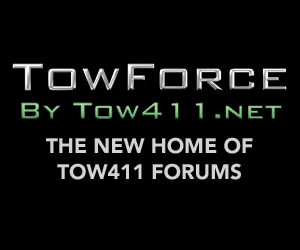 Is your Comprehensive and Collision coverage for your power units and/or trailers written on a Stated Amount or Cost New (ACV) basis? Not knowing the difference could cost you thousands at the time of a loss.
Is your Comprehensive and Collision coverage for your power units and/or trailers written on a Stated Amount or Cost New (ACV) basis? Not knowing the difference could cost you thousands at the time of a loss.
Imagine, your prized heavy-duty wrecker was just the subject of an unforeseen accident and your insurance company has deemed it a total loss after identifying the extent of the damages. How and on what basis your full coverage (comprehensive and collision) insurance was written could be the difference between being in an equity or inequity position which could ultimately cost you thousands. According to their contract, the insurance carrier owes the fair market value toward the replacement of the insured power unit regardless of how much is owed to the respective lienholder. If your policy is written on a Stated Amount basis, that amount is the MOST the insurance company will pay, minus your deductible toward the replacement of your power unit regardless of its fair market value. Conversely, if your policy is written on a Cost New basis, the insurance company will pay the fair market value even if it is more than what is listed as the COST NEW amount on the actual policy.
Example:
Your insured power unit is listed on the policy for $100,000. At the time of the loss, the market value for your power unit is $120,000. When written on a Stated Amount basis, the insurance company will pay $100,000 minus your deductible.
Given the same example, if the policy is written on a Cost New basis, the insurance carrier would pay $120,000 minus your respective deductible.
Of note, the insurance policy will not pay for the Federal Excise Tax of 12%.
In conclusion, when your insurance policy is written on a Stated Amount basis, you should review the value listed on the policy with your insurance agent to make sure it corresponds with the fair market value. Since power units depreciate, it is vital to adjust these values downward annually with your representation on an annual basis. If your agent sits down with you at renewal, that is the perfect time to work out these fine details. Also, and of note, when a power unit is added by endorsement during the policy term, be certain to let your agent know the value of the power unit or trailer given the current market value in your respective operating territory.
Premium comparisons between polices written on Stated Amount vs Cost New are roughly the same given the overall underwriting criteria on an account-to-account basis. Meaning some policies written on a Stated Amount are more premium dollars than policies written on a Cost New basis…and vice versa.
For additional information on this or any other insurance topic you are dealing with, please email or give us a call!
For more information, visit www.mkeithins.com.








